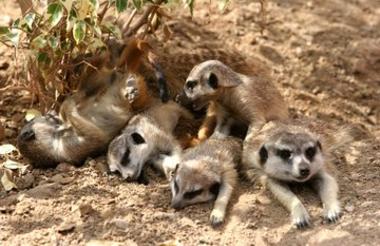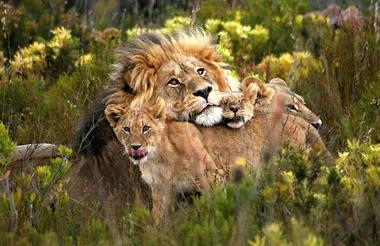Over the centuries, French, Dutch, English, Malay and African influences have moulded a city replete with natural beauty, an eclectic culinary smorgasbord, and a rich history. This is Cape Town, the Mother City, the oldest city in South Africa. And it’s where modern South Africa began. The seat of the South African parliament is here making Cape town the legislative capital of South Africa.
Cape Town has been called Table Bay, the Cape of Storms, the Cape of Good Hope, The Cape, and directors of the English East India Company described it as ‘the Gibraltar of India’. It finally became known as Cape Town in 1773. The Dutch East India Company had sent Jan van Riebeeck to build a fort, as well as The Company Garden - a vegetable garden and fruit orchard to supply ships on their way to the East and Australia with fresh food. A remnant of the garden still exists in the city today, including one of the original Saffron pear trees which is still bearing fruit. It’s the oldest cultivated fruit tree in the country.
The most prominent and iconic feature of Cape Town is Table Mountain. One of the New Seven Wonders of the world, and part of the Cape Floral Kingdom World Heritage Site, Table Mountain is one of the most popular visitor destinations in Cape Town. From the top, you can see the whole of the city laid out before you, as well the Pacific Ocean lapping at the foot of the African continent, and further along the coast is the Atlantic Ocean.
The mix of ethnic influences have, over the years, created a city with a unique, creative and cosmopolitan flavour unlike any other city in South Africa. All of which can be experienced in the museums, art galleries, spectacular seafood, the Victoria and Albert Waterfront, the Two Oceans Aquarium, the historic and important Robben Island. Wildlife such as great white sharks, penguins, seals, and iconic African wildlife in the nearby national parks. Cape Town also has one of the most colourful and photographed suburbs in all of South Africa – the Bo-Kaap. The narrow cobble streets and brightly painted homes on the slopes of Signal Hill form what was historically called the Malay Quarter. It was where free slaves and Muslims settled in Cape Town and the only place where they were allowed to freely practice their religion.
Combined with architecture that is both historically important and beautiful, vibrant nightlife, world-class beaches and the weather to go with them, as well as the city’s proximity to internationally renowned vineyards, and cheese farms makes Cape Town the city with it all, and more.




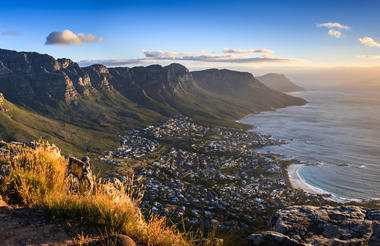
The South African province of Gauteng - 'the place of gold' - is home to one of Africa's most vibrant cities and sub-Saharan Africa's economic capital Johannesburg, South Africa's capital Pretoria, vibrant Soweto, the Magaliesberg Mountains, and the World Heritage-listed Cradle of Humankind. While it is the smallest of South Africa’s provinces, it serves as the economic powerhouse of the country. Gauteng is known for its multicultural mix of people, eclectic heritage, and bustling jacaranda-lined cities fringed by scenic natural landscapes. Visitors can enjoy ample nature trailing and hiking opportunities, discover South Africa’s most famous township and explore the origins of humankind.
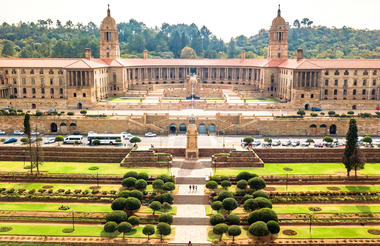
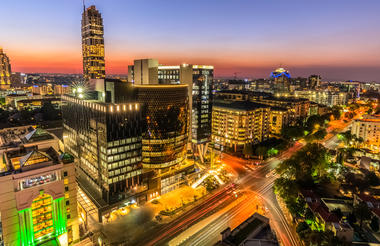
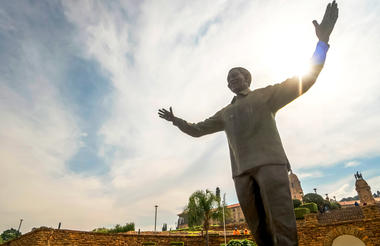



Set high on the escarpment, the Mpumalanga Highlands feature endless savannah plains meeting steep mountain passes hugging rugged rocky cliffs. The Highlands of Mpumalanga are a playground for nature and adventure lovers. A number of charming, high-altitude, grassland villages are scattered on a sea of cattle ranches which are interspersed with numerous trout fishing locations and mountain hideaways. Aside from the trout and quaint towns the highland scenery and flora and fauna are also major attractions. Visitors can enjoy a number of wonderful activities including: discovering crystal-clear streams and cascading waterfalls, visiting the Highland’s tourism mecca of Dullstroom, as well as horse riding, whiskey and beer tasting, hiking, fly fishing and much more.






Stretching across 13 000 hectares and part of the Greater Kruger National Park (GKNP) in South Africa, Kapama Private Game Reserve provides an authentic African safari experience. The reserve offers a range of stylish accommodation options across four refined lodges and bush camps from a traditional African safari camp to top-notch luxury suites. Kapama is home to the Big Five and is known for its diverse wildlife experiences which can be enjoyed on one of many game drives offering fascinating encounters with plentiful wildlife. Visitors can look forward to a variety of wonderful activities including: excellent game viewing, enjoying a relaxing spa experience and stargazing after a lamp-lit dinner under the African night sky.

